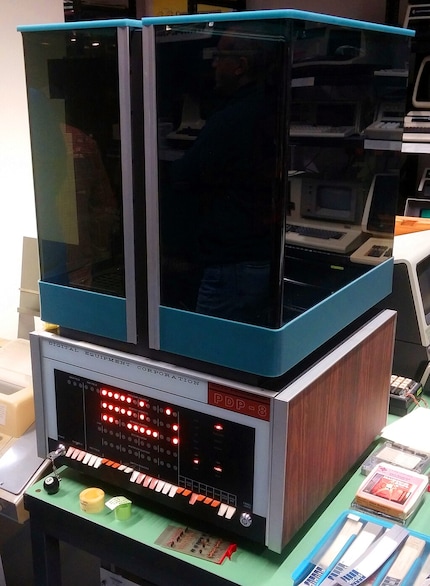
Background information
What the webcam has to do with coffee
by Dayan Pfammatter


C. Gordon Bell was one of the first pioneers to recognise the potential of PCs. The longtime Microsoft employee died last week.
He created one of the first PCs. Computer pioneer C. Gordon Bell died of pneumonia on 17 May 2024 at the age of 89, as reported by the New York Times. Bell was one of the pioneers who turned computers from giant monoliths into machines for home use.
Bell was born on 19 August 1934 in Kirksville, Missouri. Due to a congenital heart defect, he was rarely allowed to leave the house as a child. During this time, he learned to love handicrafts. He began by wiring circuits and carrying out chemical experiments. When he became healthy again, he repaired electrical appliances in his father’s workshop. At the age of twelve, he was already at the level of a professional electrician.
Bell studied electrical engineering at the renowned Massachusetts Institute of Technology (MIT) in the 1950s. In 1960, he joined the Digital Equipment Corporation (D.E.C.). There, he began to develop computers, including the PDP-8, the first commercially successful minicomputer. It cost 18,000 dollars at the time. Adjusted for inflation, this amounts to around 179,000 dollars in 2024. A lot of money for the time – and today. It targeted researchers and people working in the engineering sector. Nevertheless, the PDP-8 was revolutionary when it was launched in 1965. Before that, computers were massive machines reserved for highly specialised professionals. The PDP-8 was one of the computers used in the early days of ARPANET, a forerunner to the Internet.

Bell remained loyal to the D.E.C. for 23 years before founding his own companies, Encore Computer and Ardent Computer. By the beginning of the 1990s, he was working as a consultant at Microsoft. In 1995, he joined the company as a senior researcher. There, he worked on MyLifeBits, an online database documenting everything happening in his life. A crazy idea at the time. Today, in the age of cloud services and social media, it’s part of everyday life.
Bell was also committed to preserving the history of computing. In 1996, he co-founded the Computer History Museum in Boston. Since 1987, the ACM Gordon Bell Prize has also been awarded for outstanding achievements in the field of computing.
Bell will be remembered as a visionary. In a 1985 interview, he revealed his formula for success in the technology sector:
The trick in any technology is knowing when to get on the bandwagon, knowing when to push for change, and then knowing when it’s dead and time to get off.


From big data to big brother, Cyborgs to Sci-Fi. All aspects of technology and society fascinate me.
Interesting facts about products, behind-the-scenes looks at manufacturers and deep-dives on interesting people.
Show all